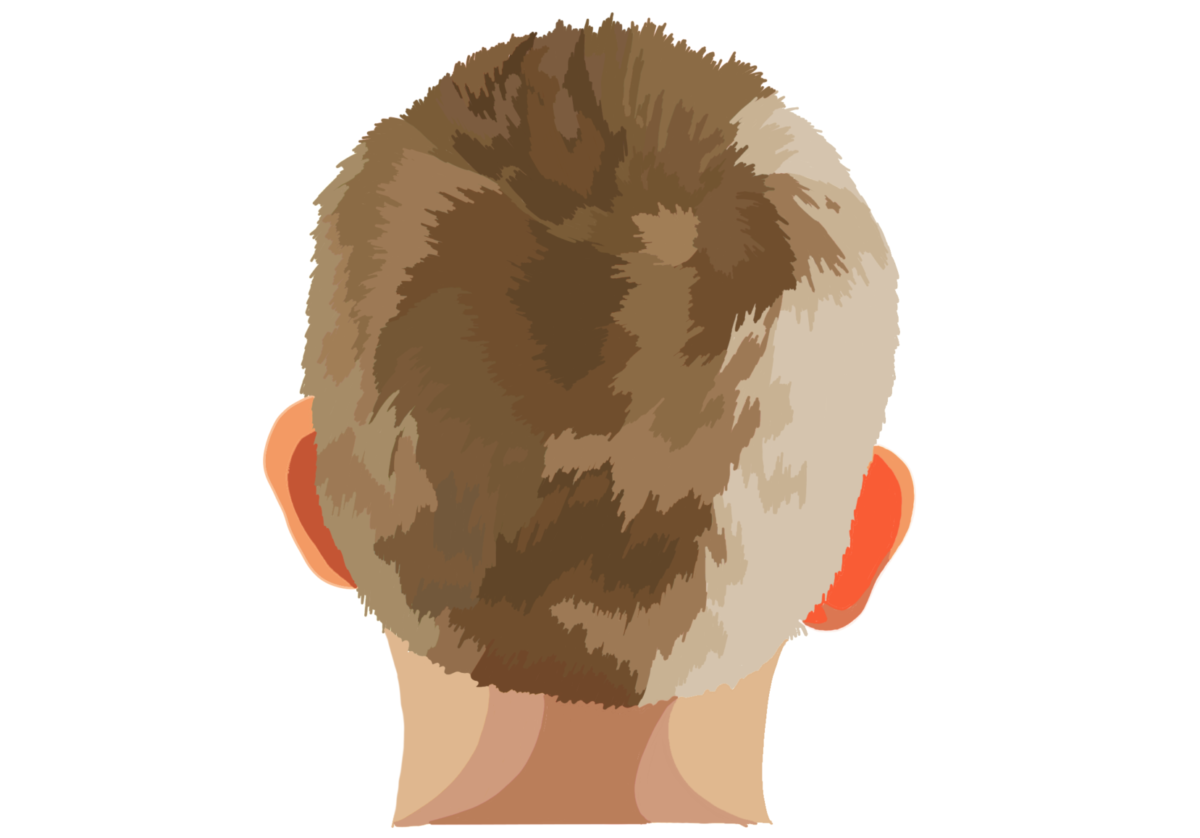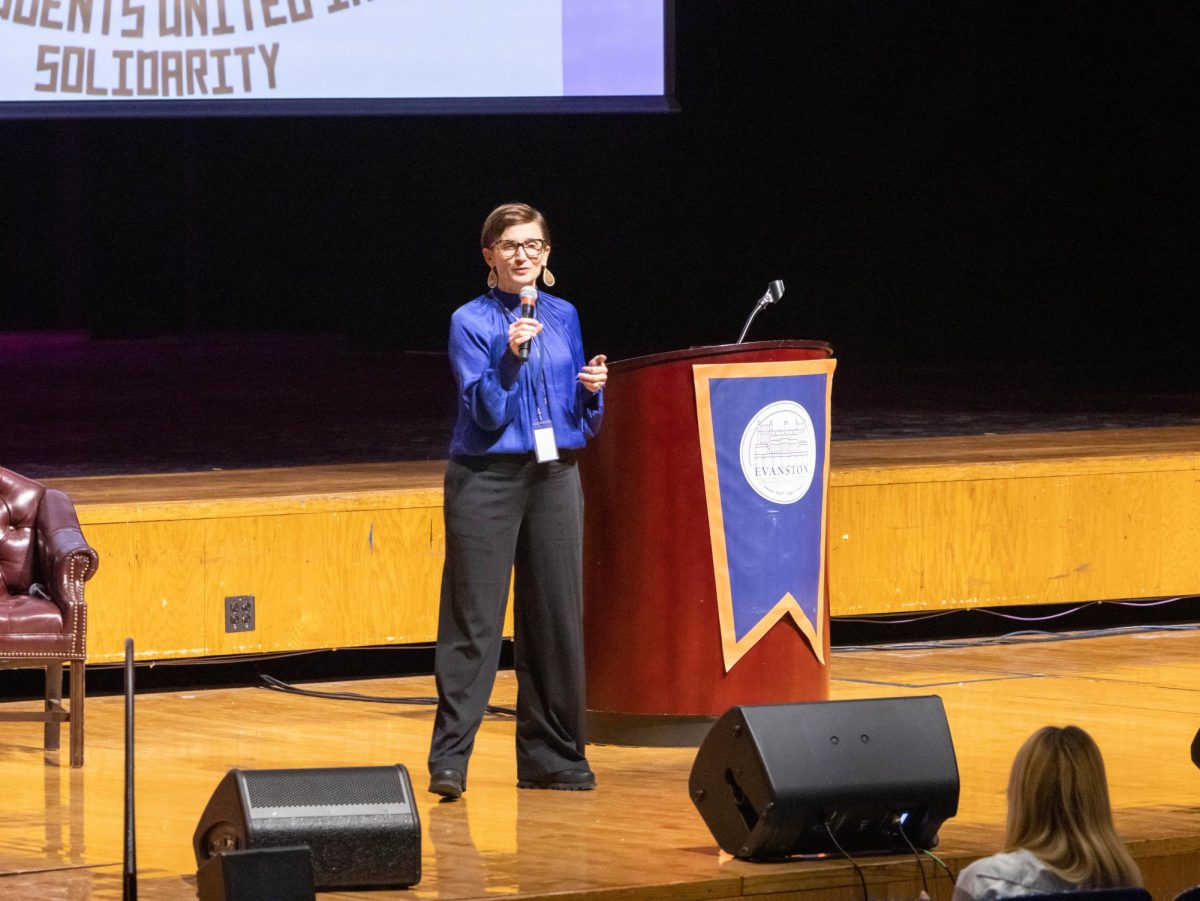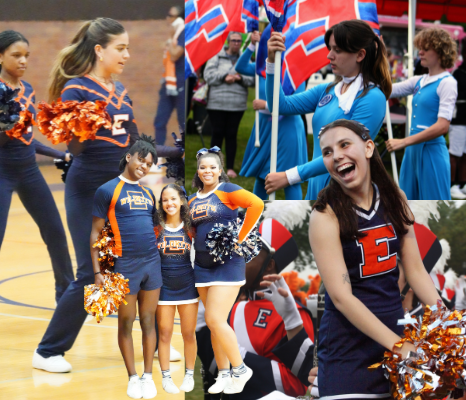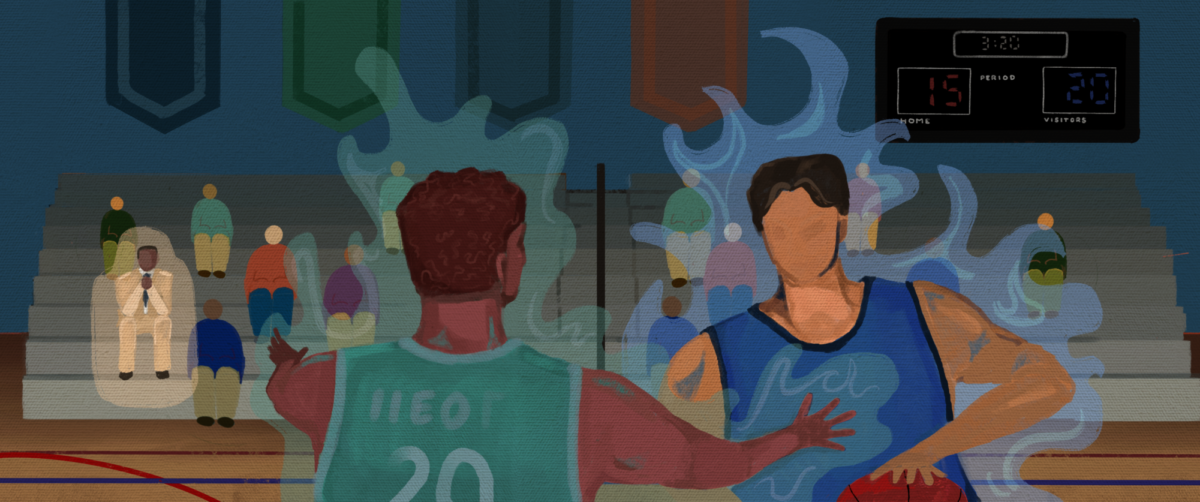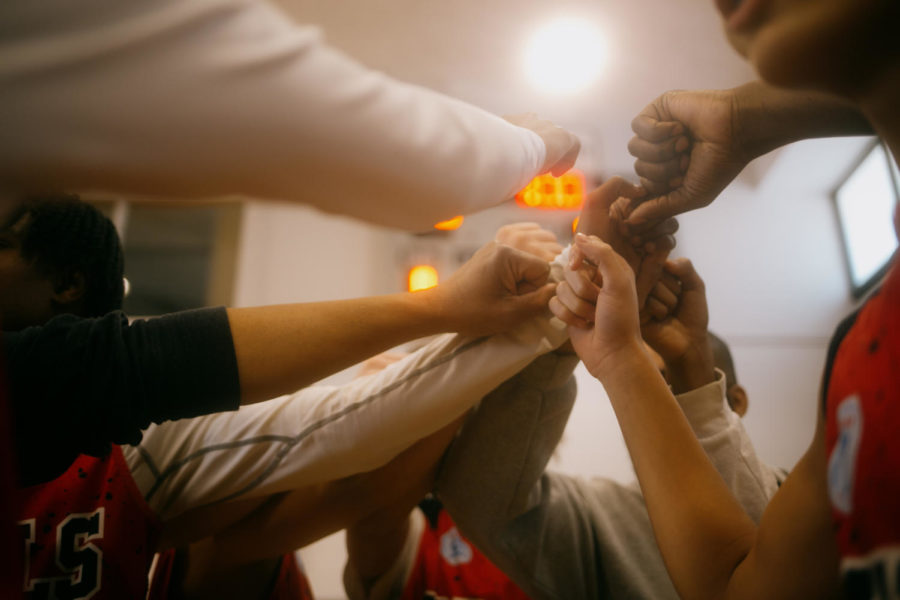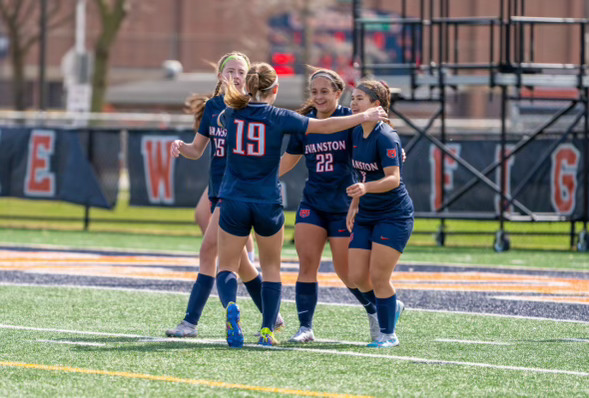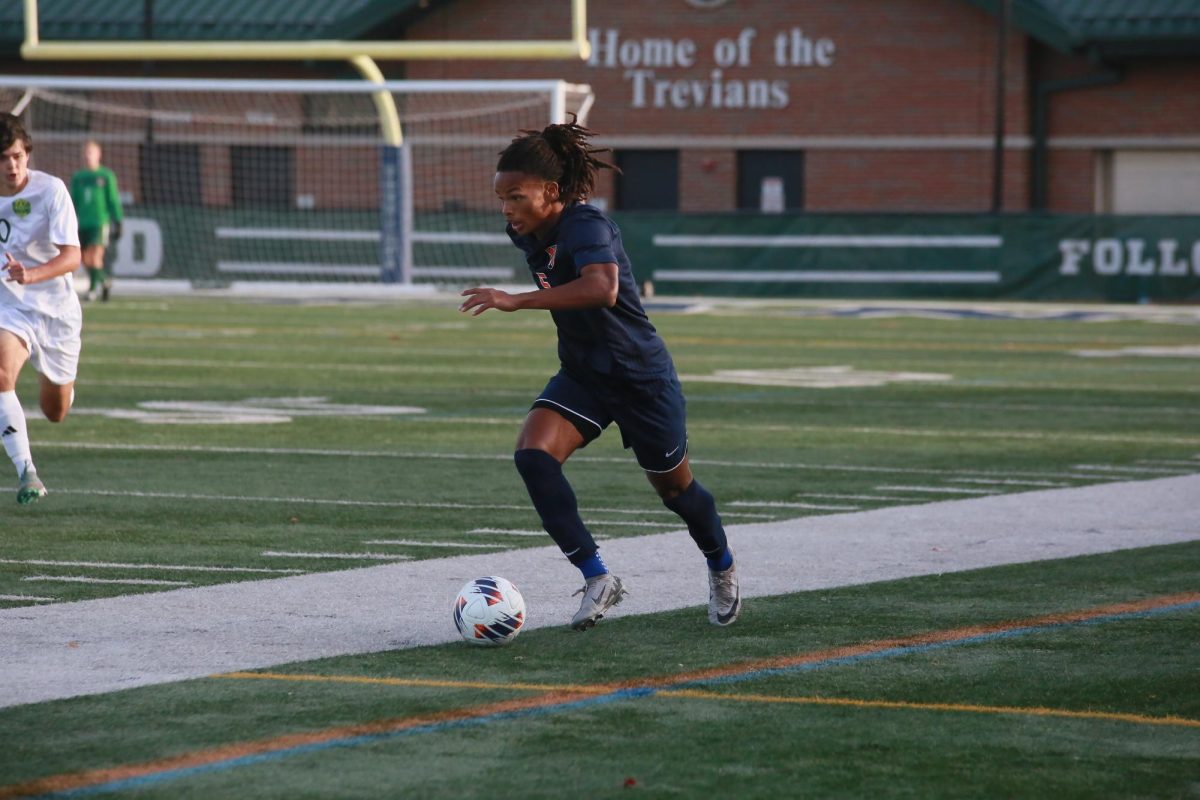In his first year as a varsity athlete, Sam Darer had to make several sacrifices. He parted with his after-school free time, his other activities, and most noticeably, his hair.
When the ETHS boys soccer team takes the field at the beginning of the season, one detail jumps out above all else. Each year, almost every player participates in a decades-old tradition where the heads of new members to the varsity squad are completely shaven. Between their lightning-fast play and bare heads, the athletes take their opposition by surprise.
“Senior year, there were only four returning guys, so our team was a lot of bald guys,” Darer, who graduated ETHS in 2023, said. “Junior year was kind of like that, too. It’s a weird sight to see a whole team walk on with bald heads. It’s something to bond over.”
The ritual takes place at a team member’s house, and returning players put new varsity players in the hot seat, completely shaving their heads. While a few students are typically hesitant to part with their locks, an overwhelming majority choose to participate in the tradition.
“The coaches were aware of [the head shaving], and they made a little speech the night teams were made,” Darer said. “I think the coaches felt like they had to say something before to kind of be like, ‘this isn’t forced.’”
While the head-shaving tradition is heavily embedded in the culture of Evanson boys soccer—so much so that head coach Franz Calixte, who has run the program for 25 years, does not know its exact origin—recent local events have cast a shadow on many longtime team-bonding rituals nationally.
In July, Northwestern released the results of an investigation into hazing allegations that included sexual misconduct, racism and physical abuse on the football team. Immediately followed by an in-depth report by the Daily Northwestern, the scandal brought national attention to Evanston’s sports culture.
During a usual year, Calixte talks to the team about the tradition after the varsity players are chosen, emphasizing that head shaving is not mandatory. This fall, he said, that speech was “not enough.”
“We’ve been hearing about hazing. With what happened at Northwestern, we had to send a letter home to make sure that [the tradition] was okay,” Coach Calixte said. “I say it every year. We always have guys that don’t cut their hair. But this year, I sent an [email]. I’d say 90 percent of the guys still did it.”
The team’s head-shaving is so ingrained in the varsity experience that many players look forward to this initiation into the highest level. The experience and physical evidence of their connection to the team create unifying bonds, and after Calixte sent his precursory email, he received some back from parents emphasizing their childrens’ enthusiasm for the tradition.
“Anytime you can find something that unites people around a common sacrifice that they have to make, it melds them together a little bit more deeply,” Evanston athletic director Chris Livatino said. “As long as they all want to participate. That’s the key difference. [Coach Calixte] has] always done it, but he went to even greater lengths this year to make sure that the parents and kids knew it’s all good if they don’t want to participate.
“I don’t want to tell people we can’t do it, because I think there is some benefit to it. We don’t want to disrupt a tradition that’s been a positive one for decades and decades.”
Recalling the storied history of this tradition, Calixte noted an especially astounding result of the head-shaving ritual. One member of the ETHS class of 2005, John Laughlin, had been hesitant to cut his long hair. After he made the varsity soccer team, he relented to participate in the shaving ritual, and his newly bald head revealed a cancerous cyst on his scalp.
“I remember his mom saying, ‘if they didn’t cut his hair, with his hair being so long, we wouldn’t have found that [cyst],” Calixte recalled. Then jokingly, he added, “Shaving hair saves lives.”
Boys soccer isn’t the only team that participates in a hair-cutting tradition. For boys swimming, head shaving plays a tactical role in the water, making an athlete more aerodynamic and swim caps unnecessary, as well as providing a team-bonding event.
Before the freshman team takes on their biggest meet of the season, other swimmers lead a cross-level activity where varsity athletes cut creative haircuts on the heads of freshmen before their hair is completely shaved the next day. The tradition offers an opportunity for newer and older athletes to interact.
After they cut the freshmen’s hair, all other swimmers attend the meet to cheer them on.
“That meet was probably the most unified the team was,” Ben Levy, another 2023 ETHS graduate, said. “Everyone showed up; everyone painted their chests. People were cutting up their shirts, writing on themselves. It gives the freshmen a chance to shine, and we cheer them on.”
Similarly to the soccer team, the swim team’s shaving is very student-driven. The event takes place in the ETHS pool’s locker rooms, or an athlete’s house or garage. In terms of communication, most occurs between the swimmers and their families.
“Kids would tell their parents, and if their parents had a problem with it, they’d tell their kid not to do it,” Levy said. “If the parent had a question, they could also reach out to the captains. The coaches knew about it, and they’d just say that we had the locker room for a period of time. It wasn’t such an official thing that there was a lot of communication involved.”
Despite the openness in communication surrounding Evanston’s team traditions, caution surrounding their purpose remains.
A large factor in hazing is the usage of humiliating traditions to exert seniority, and subsequently, power. Shaving one’s head is a commitment; Sam Darer recalled it took eight months to regrow his hair after cutting it all for the team. As a long-term change to appearance that often brings ridicule, head-shaving can be viewed as a tool of embarrassment.
However, Livatino believes that ETHS prevents hazing with its respect for the individual athlete and lack of defined power structures.
“We have a unique culture and society here in Evanston that’s different from other schools,” Livatino said. “We recognize the importance of individuality and uniqueness as a positive, whereas in a lot of other communities there’s a sort of, ‘I have to conform to everybody else.’
“It’s not that we don’t think [hazing] can never happen to us. And yet, I’ve never seen programs that go too far in trying to inculcate a group into one identity.”
Especially within programs such as soccer, where first-time varsity athletes are often upperclassmen, or swim, where teams can consist of a wide variety of ages, the usage of seniority as a weapon becomes less potent.
“When we were freshmen [in 2019], a lot of seniors said, ‘You’ll see,’ ‘You’ll find out’ [when freshmen asked about the head shaving tradition],” Levy said. “The way that they framed it when we were freshmen, it felt more like a ritual, for better or for worse. Usually it was only the seniors that shave heads, but [in 2023] juniors and sophomores did. After COVID, seniority was a lot less of a thing.”
Although these traditions are monitored and watched over, it can be difficult to control the peer pressure to participate. Shaving heads and growing back hair together is a bonding opportunity, but an assurance of no consequences for nonparticipation is essential to keeping traditions safe.
“If you don’t want to do it, you don’t have to, but you should,” Levy said on the swim team’s annual head-shaving. “It’s a team tradition.”



